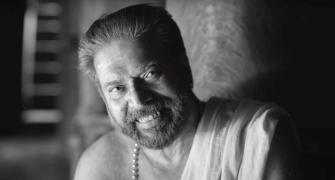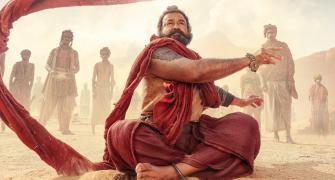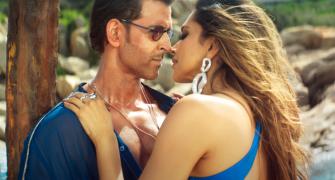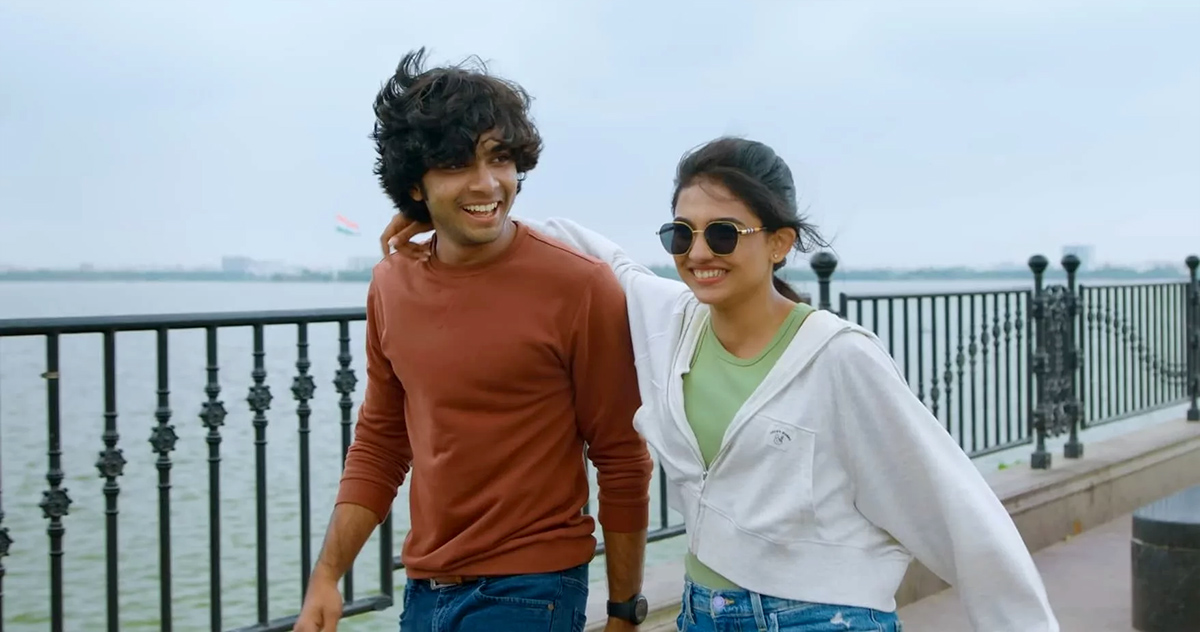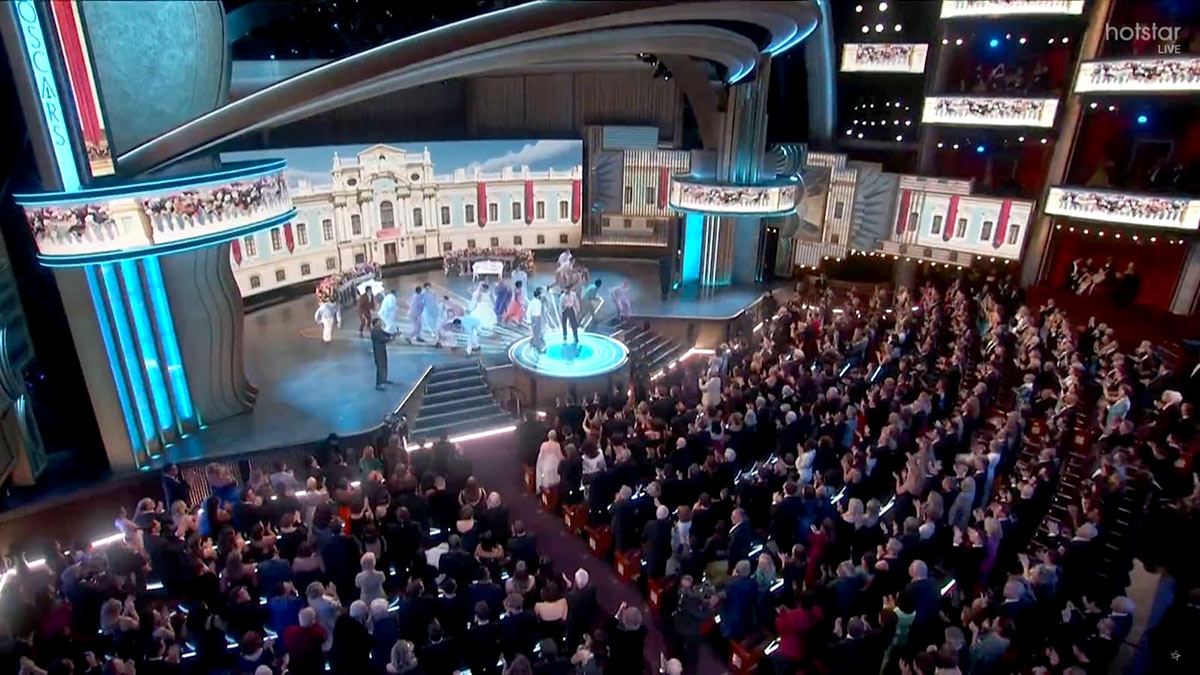You will appreciate the Mammootty of this movie better if you do not take the servile reviews to heart, for this is a grand, broad, almost proudly comic performance, assures Sreehari Nair.

Since non-Malayali critics were not ready to let their ignorance of concepts such as Chathan, Yakshi and Varahi come in the way of their enjoying a supposedly somber piece of work, they stepped out of Bramayugam and showered upon it terms that were equally vague: atmospheric, slow-burn, reminiscent of Tarkovsky.
As someone who has experienced firsthand the pretensions of a big, cosmopolitan city and someone who is blessed with sufficiently superstitious relatives down in Kerala, I could risk being ‘direct’ in my response.
As I see it, Rahul Sadasivan’s Bramayugam is a variation on the Boman Irani-Saif Ali Khan section in Darna Mana Hai, and if you were to ask my honest-to-God opinion, I think that 12-minute short had summoned up more dread than this 140-minute exercise in allegory-seeking.
Bramayugam (set in the 17th century) is a consistently underachieving movie, a movie in which characters are diminished rather than shored up, a movie that can lead you on a torturous search for symbolism and leave you in a profound mess.

First things first, the diminishment is real, and I can prove it to you by placing the ambition of the movie and its actual output side by side (without any fear of spewing spoilers).
On the posters of Bramayugam are five faces, one of whom dies within the first 10 minutes of the movie.
The other dominant face is that of a Yakshi, or a blood-sucking nature spirit, who is revealed to be just a glorified cameo doll.
So despite the posters and the trailer implying something of density and complex knitting, let us be clear that this is essentially a story of three characters, of three men.
One of the three is an unsuspecting visitor at a ramshackle mansion where a gruff-sounding servant (baby-faced Sidharth Bharathan going full-hoarse) and a Brahmin Godhead (Mammootty, ahoy!) lie crossed with each other.
The visitor (Arjun Asokan) is a folk singer from a chastised caste on the run, and we are supposed to put ourselves in his doomed position.
There are numerous attempts at angled expressionism, and shots of sweaty faces and spiders hard at work, but what moves the plot forward is the promise of a deep-rooted conspiracy expressed through dialogues.
I have to admit that I enjoyed the imaginative passages of cooking, which hit me as a blend of Malabar and comic-strip Gallic. But before I could savour those passages, there was a final leap into a supernatural gray-out.
The gray is real too, though I could not quite comprehend the purpose behind this technique.
Contrary to what Rahul Sadasivan seems to believe, people in the 17th century did not think in terms of black-and-white imagery.
Any justification that may be sought by comparing Sadasivan’s technique to Raging Bull or The Artist fails because the black-and-white in Martin Scorsese’s film and Michel Hazanavicius’s film had a tabloid quality about them (in each of those cases, the cinematography reinforced how people in that particular time-period consumed their news).

Bramayugam, on the other hand, is set in a pre-camera, pre-Daguerreotype era. To put it in precise terms, it is set in an era of vibrant paintings.
If you ask me, there's no ground for using black-and-white to depict a 17th-century setting because in no way does the look correspond to the visual consciousness of that age. And to a friend who argued that the cinematography in Bramayugam is meant to symbolise the helplessness of its characters, I could only say, 'Monsieur, black-and-white is home to some of the finest screwball comedies.'
But monochrome works just as well for a movie like this one since colour, if you have noticed, can give a narrative speed as well as extra dimensions, and Bramayugam does not offer so much as delicate changes of rhythm.
It’s a movie about the 50 shades of ennui.
Well, I was bored, but what got to me was the fact that those who did not share in my response were too ‘yellow’ to even parse what the movie appears to be finally saying.

The final point that Bramayugam seems to be making is that Malayalis are metaphysically evil, and that some skunk who had escaped the 17th-century mansion is still at large in the state.
Put this message and the patronizing technique together and what you get is a movie that preaches the politics of self-hatred while banking on the aesthetics of narcissism.
The only conceivable reason to stay locked up with Bramayugam is to watch Mammootty's turn as Kodumon Potti, the Brahmin Godhead.
I assure you, you will appreciate the Mammootty of this movie better if you do not take the servile reviews to heart, for this is a grand, broad, almost proudly comic performance.
Potti is not a snake raring to show his fangs but a fox who wants to dance in the morning dew.
When he stretches his legs and runs his tongue over his teeth, it has the same languorous intensity as Leopold Bloom bending down from his stove to pet his kitty. Yes, this is less a performance to be overawed by and more a performance to relax into.

The too-programmatic analyses of Mammootty's recent forays have meant that critics often miss the actor's attempts to become intimate with his audience.
Here, as in Nanpakal Nerathu Mayakkam (where he had brought you up close with his bile and his phlegm), the magic is in the way he slurps on screen, in how he allows the catch in his voice to have its say.
Since greatness in this country is naturally associated with devoutness, I may be risking heresy when I say that Kodumon Potti is not so much an imposing performance as it is a sensual one.
Mammootty plays Potti as a man whose eyes glaze over when his authority is challenged, a man who rebukes with a teary smile. In short, this is a performance you can touch, a performance that reminds you why terms such as 'atmospheric,' when used in a throwaway sense, when divorced from human truth, are better suited to dreary hospital lounges.
Why am I discussing hospital lounges in the middle of a serious movie review? Probably because Rahul Sadasivan’s movie reiterated to me one of film criticism's clinical duties: how, when criticism is not an act of acknowledging the latest hysteria, it can be an exercise in probing some collective psychosis.
This is perhaps why I am compelled to look suspiciously at those who have loved Bramayugam despite finding the character of the folk singer, played by Arjun Ashokan, unconvincing.
If you think about it, the singer is the only one who represents at least a foolish belief in oncoming freedom, who represents the comedy of hoping against hope.
To say that you enjoyed a movie about liberty under siege, while claiming that you weren't taken with the only character in it who stands for life, is to stretch the argument for committed cinephilia beyond the point intended. It makes me wonder: where does movie love end and masochism begin?


